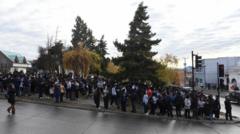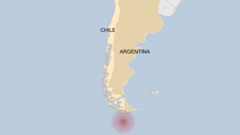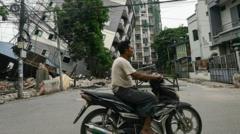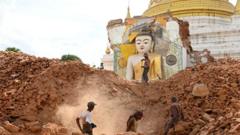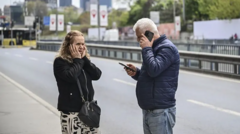In the wake of an earthquake that has claimed more than 2,000 lives in Myanmar, many in the diaspora, like labor rights activist Ko Naing, are feeling a profound survivor's guilt as they watch from abroad.
Myanmar Earthquake: Diaspora Grapples with Survivor's Guilt and Helplessness
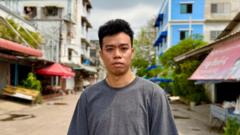
Myanmar Earthquake: Diaspora Grapples with Survivor's Guilt and Helplessness
As Myanmar faces its worst natural disaster in a century, many in the diaspora feel the weight of guilt and helplessness.
Soe Ko Ko Naing, a labor rights activist who fled military-ruled Myanmar for safety in Thailand, is grappling with intense feelings of guilt and helplessness after losing his great-uncle, who died in a devastating earthquake that struck Sagaing near Mandalay. "I feel guilty because our people need us the most now," said Ko Naing, as he struggles with survivor’s guilt and the burden of not being able to assist during this tragedy.
The earthquake, which struck on Friday, was the worst in a century, causing an estimated 2,000 fatalities and significant damage to historical landmarks and residential buildings. For many in the large Myanmar diaspora community in Thailand, which numbers over 4.3 million, the news is agonizing. "We feel so sad about not being able to do anything," lamented Yin Yin, a factory worker in Samut Sakhon, highlighting the deep emotional ties that bind Burmese migrants to their homeland.
Despite the challenges of living in Thailand, a country hosting many Myanmar citizens seeking refuge from political unrest, Ko Naing remains active in efforts to assist those affected. He is joining forces with the diaspora community to raise funds and send humanitarian aid back home, recognizing that while one might feel safe, the emotional toll of loss is profound.
Having witnessed firsthand the destruction caused by the earthquake and ongoing military actions, he reflects on his past. His great-uncle, a beacon of resilience and staunch supporter of the resistance, had been his anchor in Myanmar. Ko Naing now channels that inspiration into meaningful action, striving to help from afar. “If we always feel depressed, nobody will help our people… it’s good that we’re alive. We can still do something,” he said, showcasing the resilience prevalent among the Myanmar diaspora, even in dark times.

